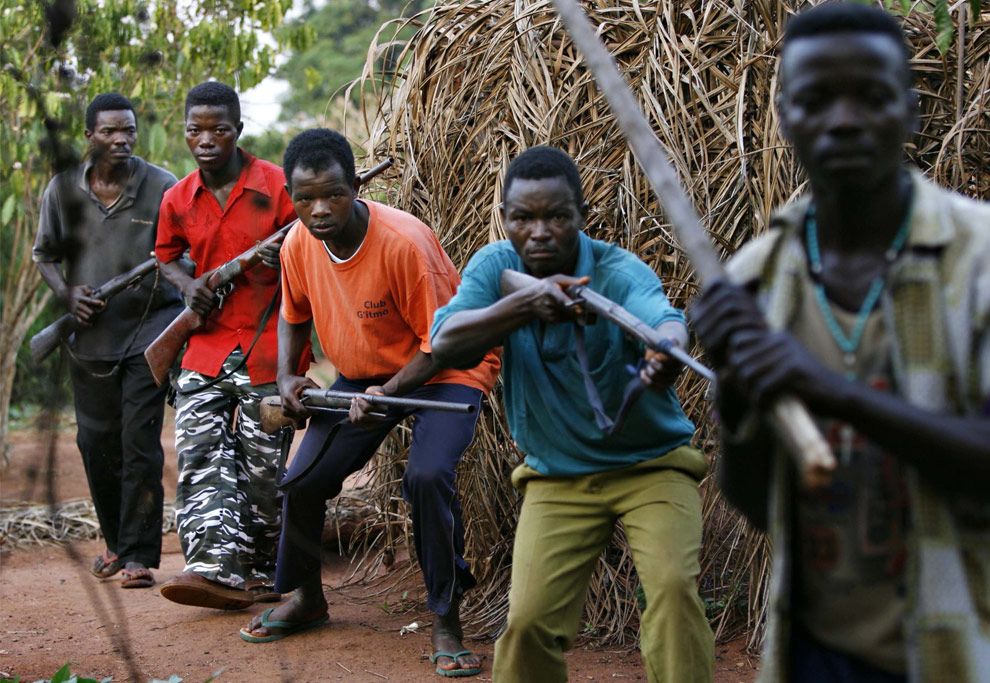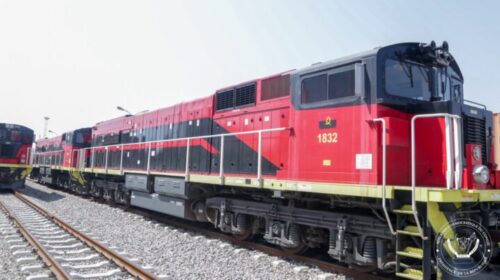Militia raids kill dozens as DRC plunges deeper into instability
Deadly attacks come as tensions grow between the president and supporters of his predecessor.
Medics at Oicha hospital in eastern DRC treat a man’s head injuries after an attack by unknown assailants in his village.
A militia group has launched a series of bloody attacks in the east of the Democratic Republic of the Congo, plunging the country further into instability after months of violence and political tension.
The Allied Democratic Forces (ADF), an extremist group, carried out a series of raids on four villages to the west of Beni territory on Tuesday, where the army has begun a large-scale offensive against the rebels.
Government authority in eastern DRC is weak and significant territory is controlled by more than 100 armed groups.
Meanwhile there is rising tension between the DRC president, Félix Tshisekedi, who took power after disputed elections in 2018, and politicians loyal to the former president Joseph Kabila.
At his inauguration speech last year, Tshisekedi promised action to boost the flagging economy, hold down prices and reduce corruption. So far, however, he has been unable or unwilling to push through significant reforms.
Among the victims in the recent attacks was an Anglican pastor in the village of Eringeti, said Omar Kavota, from a local rights group, Cepadho. “The victim had the misfortune to pass them on his way to the field with his wife,” Kavota said
DRC is wracked by malnutrition, disease, crime, corruption and warfare. On a visit last week, Michelle Bachelet, the UN high commissioner for human rights, called on the country’s government and the international community to “seize the opportunity that currently exists to lift the country out of its deadly cocktail of conflicts, human rights violations and chronic socio-economic problems.”
Bachelet said the peaceful political transition last year – the first since the country won its independence from Belgium in 1960 – meant “positive change was a possibility.” However the transition has not been without problems.
“Tshisekedi is very much a puppet president. He is certainly not going after any interests that are close to Kabila. He knows, where the risks are in terms of staying in power and where the no-go zones are too,” added Stephanie Wolters, an analyst at the South African Institute for International Affairs.
Kabila ruled from 2001 and gave up power only reluctantly under pressure from regional powers to hold elections. He was banned from standing by the constitution’s two-term limit but has retained very significant influence through his leadership of the Common Front for Congo (FCC) coalition and his effective control of the national assembly.
A senator for life, Kabila has made little secret of his continuing political ambitions and there has been talks in recent months that he might run for elections in 2023.
“If Kabila isn’t trying to get back in in 2023 then his political family falls apart. There are the same interests for him and his elite now as before the elections,” Wolters said.
The economy has deteriorated over the last year and prices of basics have risen sharply. There are continuing concerns over human rights abuses.
“Although President Tshisekedi has taken some positive steps, such as pardoning political prisoners and allowing exiled critics to return, his government’s failures on accountability mean warlords and suspected perpetrators of appalling violations and abuses remain at large,” said Deprose Muchena, Amnesty International’s director for eastern and southern Africa.
Tsishekedi has been praised for being active internationally and for moving to pay teachers in public schools their salaries. His decision to order the army to move in force against militia in the east has been popular.
The Congolese army began an offensive against the ADF on 30 October and has made some progress, dismantling many of the militia’s bases and detaining a number of senior leaders.
The violence eased in January but since November at least 265 people have been killed, according to the Kivu Security Tracker, a research initiative that maps unrest in the region.
The United States imposed sanctions on the leader of the ADF and five others in December for perpetrating serious human rights abuses including mass rape, torture and killings. The group has been operating for more than two decades, originally in Uganda.
The Islamic State has claimed several ADF attacks but researchers and analysts say there is a lack of hard evidence to link the two groups.
A UN report said the threat from a new Isis affiliate known as the Islamic State Central Africa Province (ISCAP) continued to evolve and that recent analyses by regional intelligence services suggested that more than 2,000 locals and foreign fighters from across central and east Africa had joined the group.
Last year UN humanitarian agencies working to reduce the effects of the numerous crises in the DRC received only 44% of their funding appeal. An estimated 5.3 million people have been forced away from their homes by the ongoing violence.
An Ebola outbreak has claimed more than 2,000 lives, and four new cases have been confirmed in the conflict-hit region of Beni since 20 January. A measles epidemic has claimed a further 6,000 lives, according to the World Health Organization.
Source: the guardian.com





